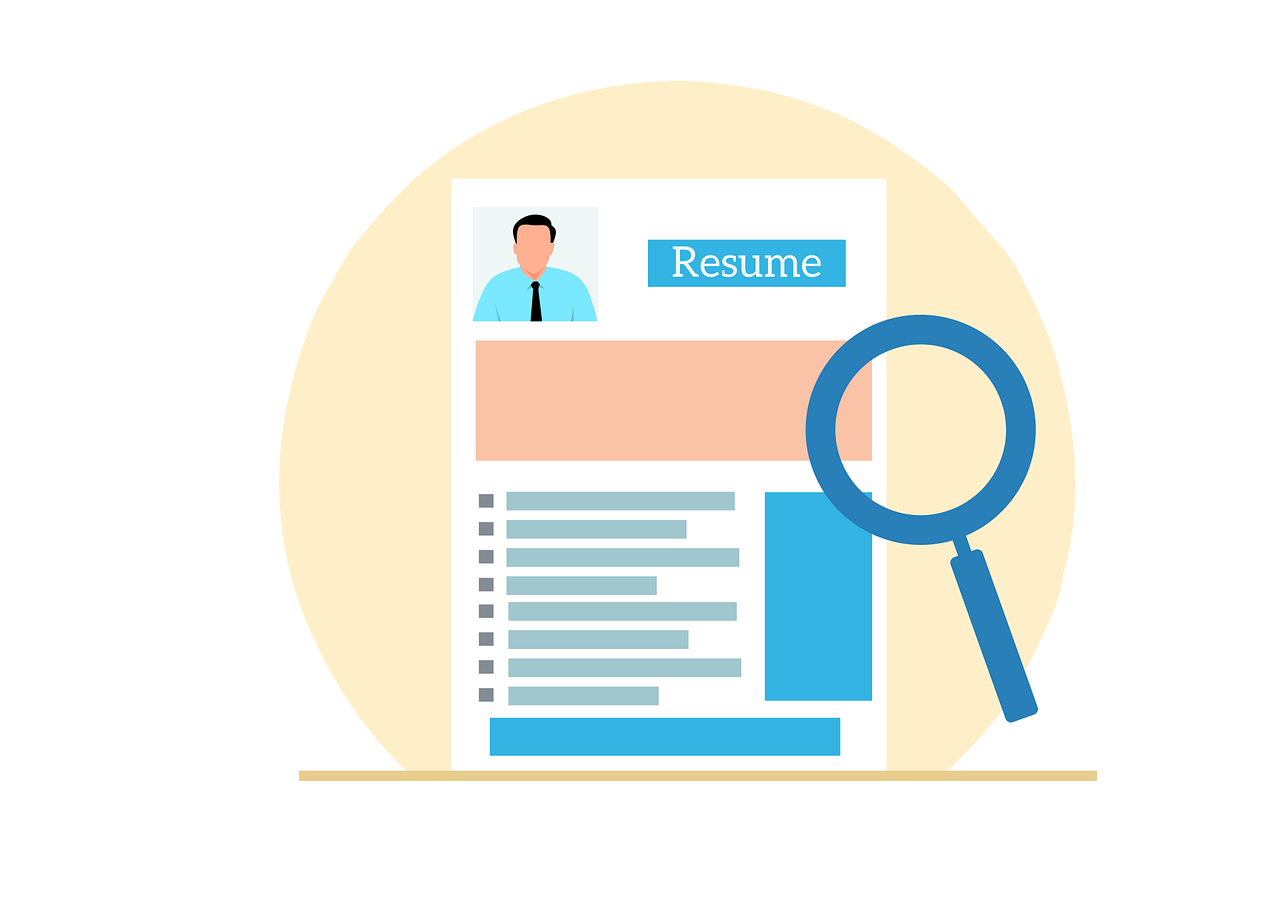How Long Should A Réśumé Be

When it comes to job hunting, your résumé serves as your first impression to potential employers. It’s the document that summarizes your professional background and achievements, making it a critical tool in your job search. But have you ever wondered, “How long should a résumé be?” In this article, we’ll explore the ideal résumé length, debunk common myths, and provide practical tips to help you craft an effective résumé that captures the attention of recruiters.
The One-Page Résumé Myth
One of the most enduring résumé myths is the belief that it should always be confined to a single page. While a concise résumé is often preferred, it’s essential to understand that the one-page rule is not set in stone. The length of your résumé should align with your career stage and the complexity of your experiences.
For recent graduates or those with limited professional experience, a one-page résumé can be suitable. However, as you gain more experience and accomplishments, trying to squeeze everything onto a single page can lead to a lack of detail and missed opportunities to showcase your qualifications.
Tailoring Your Résumé
Résumés should not be one-size-fits-all documents. Instead, they should be tailored to each job application. This practice directly impacts the length of your résumé. Tailoring involves emphasizing the most relevant qualifications and experiences for the specific position you’re applying for, which may necessitate adding or removing sections.
By customizing your résumé, you ensure that it addresses the unique requirements of each job opportunity, making it more likely to catch the eye of hiring managers.
The Goldilocks Length
So, what’s the ideal résumé length? The answer lies in finding the “Goldilocks” zone—not too short and not too long. Generally, a résumé should be concise but comprehensive. Aim for one to two pages for most mid-career professionals. However, there are exceptions:
- Entry-Level Résumés: Recent graduates or those with minimal experience should aim for a one-page résumé.
- Mid-Career Professionals: Aim for a one to two-page résumé, depending on the complexity of your career.
- Senior-Level Executives: Senior professionals with extensive experience might have longer résumés, but they should still prioritize brevity.
Trimming the Fat
To achieve the ideal résumé length, you need to be selective about the information you include. Here are some tips for trimming the fat:
- Focus on Relevance: Highlight experiences, skills, and achievements most relevant to the job you’re applying for.
- Remove Outdated Information: If you have experiences from a decade ago that aren’t pertinent, consider excluding them.
- Condense Early Career: Summarize your early career to allocate more space for recent, impactful roles.
- Streamline Language: Use concise and impactful language to convey your accomplishments.
Remember that brevity doesn’t mean omitting essential details. It means presenting information in a clear and succinct manner.
Showcasing Achievements
One way to justify the length of your résumé is by showcasing your achievements. Instead of merely listing job responsibilities, emphasize your contributions and accomplishments in each role. Use quantifiable metrics whenever possible to demonstrate the impact you’ve made.
For example, rather than saying “Managed a team of salespeople,” you could say “Led a high-performing sales team of 10 members, resulting in a 20% increase in revenue within one year.”
Résumé Sections and Their Length
Different sections of your résumé should have varying lengths based on their importance and relevance. Here’s a breakdown:
- Contact Information: Keep this section concise with your name, phone number, email address, and LinkedIn profile.
- Summary or Objective: A brief but impactful statement summarizing your career goals and qualifications.
- Work Experience: Provide detailed information about your recent and relevant work experiences, but condense older roles.
- Education: Briefly list your educational background, including degrees and institutions.
- Skills: Highlight your key skills, but avoid lengthy lists.
- Additional Sections: Include additional sections like certifications, awards, or volunteer work as needed, but keep them concise.
Each section should serve a purpose and contribute to the overall narrative of your résumé.
Online Résumés and LinkedIn Profiles
In today’s digital age, résumés often have an online counterpart, such as a LinkedIn profile. While LinkedIn allows for more extensive information, it’s essential to maintain a balance between thoroughness and conciseness.
Online profiles can provide more context and links to projects or portfolios, but the same principles of relevance and brevity apply. Ensure that your online presence complements your traditional résumé.
Résumé Formatting and Fonts
The formatting and fonts you use can influence the perception of your résumé’s length. Here are some tips:
- Font Choice: Use a legible font like Arial, Calibri, or Times New Roman.
- Font Size: Stick to 10-12 point font for body text and slightly larger for headings.
- Margins: Maintain consistent and reasonable margins to ensure readability.
- Bullet Points: Use bullet points to break up text and make it easier to skim.
A well-formatted résumé not only looks professional but also enhances readability, making it more likely to be thoroughly reviewed.
Getting Noticed
Standing out in a sea of résumés is crucial. To achieve this, consider the following strategies:
- Keywords: Use industry-specific keywords relevant to the job you’re applying for to improve your résumé’s visibility in applicant tracking systems (ATS).
- Accomplishments: Focus on your accomplishments and how you added value to previous employers.
- Quantify: Whenever possible, use numbers and percentages to demonstrate the impact of your work.
- Tailor Your Summary: Customize your summary or objective to align with the job description.
By optimizing your résumé for keywords and emphasizing your achievements, you increase your chances of grabbing a recruiter’s attention.
Résumé Length Across Industries
Résumé expectations can vary by industry. Some fields may value brevity and directness, while others may expect more detailed information. It’s essential to research industry norms and tailor your résumé accordingly. For creative professions, for instance, a longer résumé may be acceptable to showcase a portfolio of work.
Common Résumé Mistakes
Before we conclude, let’s address some common résumé mistakes that can affect both length and effectiveness:
- Spelling and Grammar Errors: These can undermine your professionalism.
- Overuse of Jargon: Avoid industry-specific jargon that may confuse non-experts.
- Lack of Focus: Ensure that every piece of information on your résumé serves a purpose.
Conclusion
In the world of résumés, there’s no one-size-fits-all answer to the question of length. The ideal résumé length depends on your career stage, the industry you’re in, and the specific job you’re applying for. The key is to strike a balance between brevity and completeness, emphasizing your most relevant qualifications and achievements.
Remember, your résumé is a dynamic document that should evolve with your career. Tailor it for each application, focus on your accomplishments, and stay updated on industry expectations to ensure your résumé continues to open doors to exciting career opportunities.
FAQs
1. Should I include every job I’ve ever had on my résumé?
- No, focus on the most relevant and recent positions that demonstrate your qualifications for the job you’re applying for.
2. Is it okay to use a creative or non-traditional résumé format?
- It depends on your industry. Creative fields may welcome unique formats, but most industries prefer traditional résumé layouts.
3. Can a résumé be too short?
- Yes, if it lacks essential information or doesn’t adequately showcase your qualifications, it can be too short.
4. How often should I update my résumé?
- Regularly update your résumé, especially after significant achievements or job changes, so you’re always prepared for new opportunities.
5. What’s the role of keywords in résumés?
- Keywords are crucial for ATS compatibility. Use relevant industry-specific keywords to improve your chances of getting noticed by recruiters.
Now that you have a clear understanding of résumé length and best practices, you can confidently craft a résumé that opens doors to your desired career path.






